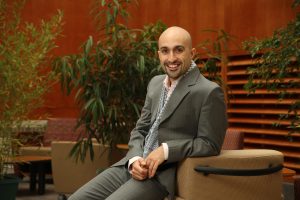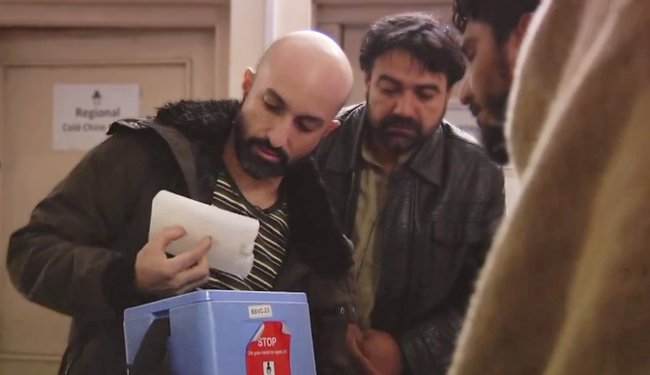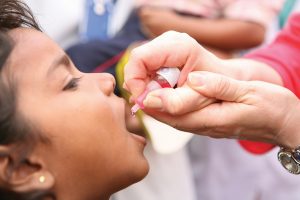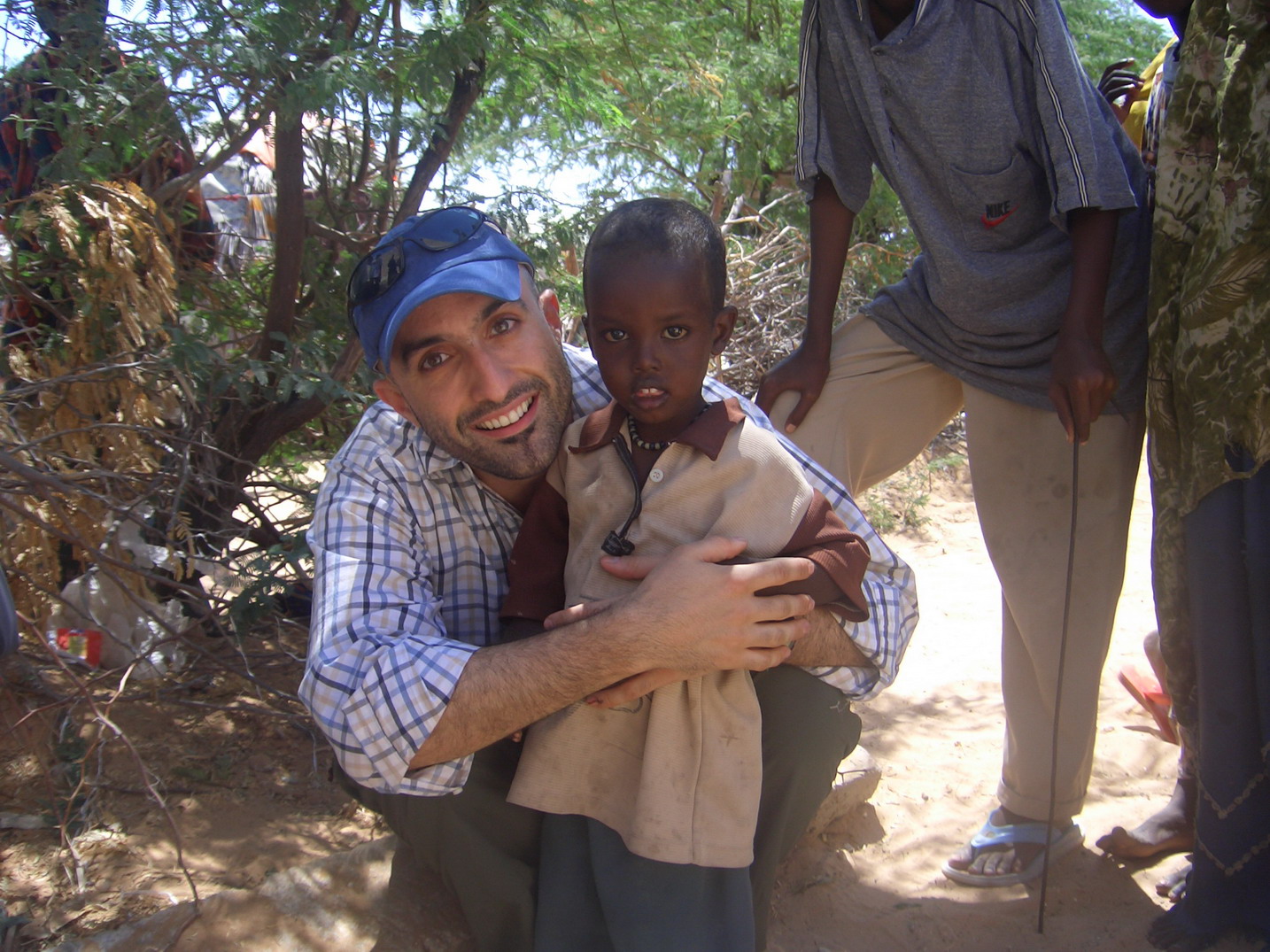
Each step of Jalaa’ Abdelwahab’s journey in life has uniquely prepared him for this next one. . . eradicating polio.
Growing up in Ramallah, Palestine, he remembers being influenced by witnessing the public health hazards created by nearby Israeli settlements and within Palestinian refugee camps. He attended classes in secret as occupation forces denied young adults like him the right to an education. After he finished high school, he secured a scholarship to Hope College.
At first he wanted to be a doctor. Influenced by his upbringing, he had a deep desire to promote equality in society. However, early in his studies he realized that he wanted to find solutions for large-scale health problems, rather than work with just one patient at a time.
Jalaa’ credits his professors for helping him nurture diverse interests – from biology to painting and poetry to acting. He also grew from his involvement in activities like a semester abroad in Australia, the Model Arab League, the International Relations Club, and serving as a resident assistant. Each new endeavor gave him an opportunity to hear the stories of students from different backgrounds and to share his experiences with them.
“Hope College helped me develop a comprehensive package for life. It helped me develop very strong academic discipline, but it also gave me room to build and express social and artistic skills.”
Jalaa’ graduated from Hope with a degree in biology and biochemistry in 1997. Passionate about establishing communities founded on principles of equality and health, he pursued his Masters of Public Health in Epidemiology at the University of Michigan. He then joined the Public Health Prevention Service fellowship program working with the Center for Disease Control and UNICEF and became involved in eradicating polio and measles, starting first at the WHO African Regional Office in Harare, Zimbabwe. He also worked for two years with the NYC Department of Health and Mental Hygiene on epidemiological investigations of tuberculosis in the city. Upon completing his fellowship in 2003, he joined CDC as a Public Health Advisor in the Polio Eradication Branch providing technical support to Egypt and India.

But it was on a field assignment with the polio eradication program in South Sudan during the civil war that he discovered his calling. In an interview with IES Abroad, he shared, “that experience was beyond anything I could describe. I realized how noble and simple the goal for polio eradication is: once eradication is achieved, every single person will live without the threat of death or disability from polio. It is the definition of equity—something I have always dreamed of seeing and experiencing growing up in Palestine. I felt committed and inspired, and I embarked on a journey to fight this disease in all corners of our planet.”

Today, he coordinates with UNICEF, WHO, CDC, Rotary International, and the Bill and Melinda Gates Foundation to work closely with country offices, regional offices and government counterparts to implement strategies to stop poliovirus transmission in the most complex settings around the world. They conduct mass vaccination campaigns during short periods of time to vaccinate every single child with two drops of polio vaccine in an effort to wipe out the virus once and for all.
They are getting close. In the past 20 years, the number of cases has fallen by more than 99 percent. In 1988, there were 350,000 cases of polio each year, affecting 125 countries. In 2017 there were only 16 cases in two countries: Afghanistan and Pakistan. Jalaa’ recently discussed this as a panelist at Harvard’s T.H. Chan School of Public Health and was featured in an article on polio eradication in TIME Magazine.
“The best feeling is when you reach a child who hasn’t been vaccinated. You know that this beautiful human being in front of you deserves this protection just as much as any other child in the world. Once we realize we’re living in a global village and we should all be treated as equal, we all benefit.”

Thanks to the incredible dedication of influential figures such as Jalaa’ Abdelwahab, estimates indicate that not a single person may suffer from polio in 2018 and the years to follow.
Anna Gibbs ’20 and Scott Travis ’06 contributed to this post with information from earlier work by News from Hope College and IES Abroad.


Jalaa is a former student. I would love to send him a message. Would you send to me his email address? Send to jack@ridl.com
Thank you. And thank you for this beautiful and beautifully written piece.
Jack